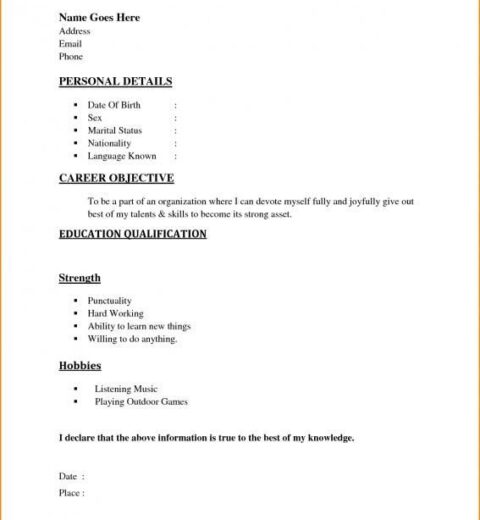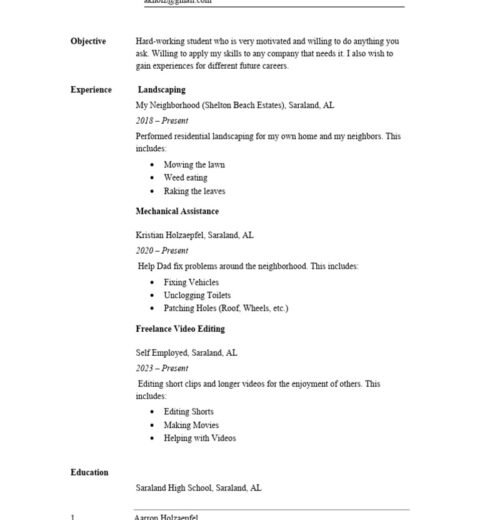When it comes to crafting a compelling resume, one of the most frequently debated components is the inclusion of references. Candidates often find themselves wrestling with the question: should I put references on my resume? This inquiry carries significant weight, as it not only influences the structure of the resume but also the impression it leaves on potential employers. In this article, we will delve into this topic methodically, offering definitive guidance and insights.
Understanding the Role of References
References serve as endorsements from individuals who can vouch for your qualifications, work ethic, and character. They play a critical role in the hiring process, providing potential employers with a glimpse into your professional life. However, the question arises: are references pertinent enough to include directly on your resume?
Historical Context and Evolving Norms
Traditionally, it was commonplace for job seekers to append a list of references directly to their resumes. This practice was grounded in the assumption that hiring managers actively sought this information at the outset. However, over the years, industry norms have undergone a transformative shift. In today’s competitive job market, there’s an increasing consensus that directly adding references to a resume is not only unnecessary but potentially detrimental.
When to Include References on Your Resume
There are specific scenarios where including references might be advisable. For instance, if the job posting explicitly requests references or if you are applying in industries where reputational endorsement is particularly crucial (such as academia or certain non-profits), it may be wise to include them. In these instances, references can serve as a powerful tool to bolster your candidacy.
Alternatives to Including References
Instead of listing references directly on your resume, consider these alternative strategies:
- Statement of Availability: You might include a simple line that states, “References available upon request.” This phrase succinctly communicates your willingness to provide references without cluttering your resume.
- Separate Reference List: If you decide to prepare a separate document for references, ensure that it is formatted professionally. Include the contact details and a brief description of your relationship with each reference. This allows you to control what information is shared and keep your resume focused on your skills and accomplishments.
Choosing the Right References
If you decide to provide references, it’s essential to choose wisely. Not every acquaintance or colleague will suffice. Your references should ideally include individuals who are familiar with your work and can speak positively about your capabilities.
Consider these categories when selecting references:
- Professional References: Former supervisors, mentors, or colleagues can provide a clear depiction of your work performance and professional demeanor.
- Academic References: If you are a recent graduate, professors or advisors can reflect your abilities in an educational context.
- Character References: These individuals can speak to your character but may hold less weight in a job-specific context unless required.
Prepping Your References
Once you have identified your references, it is crucial to prepare them. Reach out to each person, explain the jobs you are applying for, and ask if they would be willing to provide a reference. This not only ensures your candidates are prepared but also allows them to tailor their responses related to the position you are seeking.
Building Stronger Relationships
A solid reference relationship involves mutual respect. Nurturing these relationships can lead to more robust endorsements. Keep your references informed about your job search and follow up with a thank-you note after their assistance. This practice not only conveys gratitude but also strengthens your connections for future opportunities.
The Impact of References on Employment Decisions
Understanding how references affect hiring decisions is crucial for any job seeker. A glowing reference can be the deciding factor for many employers, particularly if they are deciding between candidates with similar qualifications. Conversely, a negative reference can swiftly derail your prospects. Thus, it is imperative to ensure that your selected references are not only reliable but also capable of providing a favorable assessment of your professional history.
Industry Variations
Different industries may have varying expectations regarding references. In more conservative fields, such as law or finance, references may carry more weight, while in creative sectors, portfolios and work samples may take precedence. Understanding the norms of your specific industry can guide your decisions regarding reference inclusion.
The Bottom Line: Clarity and Professionalism
In conclusion, the decision to include references on your resume ultimately hinges on context and professionalism. Rather than cluttering your resume with references, providing a statement about their availability is often a better choice. When you opt to present references, ensure you choose wisely, prepare them adequately, and maintain professional relationships. Your references are allies in your job search, and their impact can significantly influence your success.
In the ever-evolving landscape of job hunting, clarity and professionalism should always remain your guiding principles. By following these comprehensive guidelines, you can confidently navigate the intricacies of including references on your resume, positioning yourself as an informed and prepared candidate in a competitive job market.




